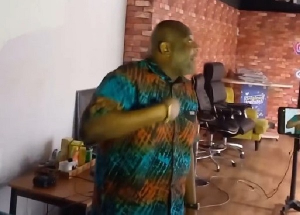Human development and general social progress has been a mattter of concern to most generations. These themes are hence amplified in the Millenniun Development Goals. However for the benefits of global development to be durable in the long run, then there has to be the requisite human resource capital to sustain this progress. This is why educating young people,the future leaders is crucial to global development.
Though the quest for achieving universal primary education is a step in the right direction, there different challenges to this noble goal in different parts of the globe. Often in the rural areas of Ghana, the family requirement of fuelwood collection in poor rural communities depends on children of school going age together with the women folk. These kids spend laborious time and energy in search of fuel for their families. Though this is beneficial for the family and also a way for helping kids pick up some family roles and learn to be responsible or inculcate some positive work ethic in these kids; more often than not, they return home drained of energy and sometimes wounded due to injuries sustained whilst cutting the fuelwood etc.
Given that several rural areas in the country are off the national grid, it would be rewarding if these kids after playing and doing some household chores can take advantage of the sunlight to do their homework or study together. However with the additional task of fuel collection, they are often exhausted and have to make use of poor light sources such as candles to study at night. Worsening the case is the situation whereby some parents will go to the school and request for their ward to come home and help find firewood for the family. This situation though unfortunate still persists in some rural areas. This affects school attendance and performance at school.
The quality human resource skills development needed to propel the nation is thus compromised and the nation loses. Therefore, the accessibility to improved cooking technology will relieve such children of the burdens of fuelwood collection so they fully enjoy their right to education. This is an effective avenue for breaking the cycle of poverty.
Moreover realising universal access to primary education will also have ripple effects for other Millennium Development Goals.
Submitted by: Felix Kwabena Donkor
Aalborg University,Denmark
Opinions of Tuesday, 1 October 2013
Columnist: Donkor, Felix Kwabena


















